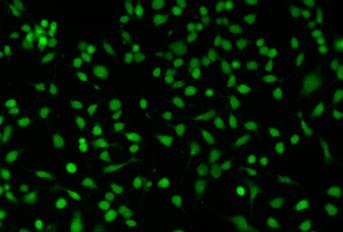Associação Portuguesa de Investigação em Cancro
Breast Cancer: relevance of low molecular weight protein tyrosines phosphatase isoforms
Breast Cancer: relevance of low molecular weight protein tyrosines phosphatase isoforms

Low-molecular weight protein tyrosine phosphatase (LMW-PTP) has been associated with tumorigenesis and tumor progression. However, its role remains controversial. In this study we demonstrate that the controversial role of this protein can be due to the paucity of studies focused on its two main isoforms, fast and slow. The differential expression of these isoforms should be taken into account when studying this protein in the context of tumor, namely breast cancer. Our results highlight the role of these isoforms in breast cancer.
Authors and affiliations:
Irina Alho1,2, Luís Costa2,3, Manuel Bicho1 and Constança Coelho1
1Genetics Laboratory, Lisbon Medical School, Lisbon, Portugal;
2Institute of Molecular Medicine, Lisbon, Portugal;
3Medical Oncology Department, Oncology Division,
Santa Maria Hospital, Hospital, North Lisbon Hospital Center, Lisbon, Portugal
Abstract:
Background: Low molecular weight protein tyrosine phosphatase (LMW-PTP) is a polymorphic protein with two major isoforms whose role in tumorigenesis is currently controversial. Materials and Methods: We characterized LMW-PTP genotype, isoform expression and activity in six different human breast cancer epithelial cell lines (ZR75, MDA-MB-231, MDA-MB-231BO, MCF7, MDA-MB-231BO2, MDA-MB-435) and compared them with MCF10A, a normal breast epithelial cell line. Results: mRNA expression of the slow isoform was increased in almost all breast cancer cell lines and that of the fast isoform was reduced (p<0.05) in all breast cancer cell lines. Regarding enzymatic activity, only MCF7 had significantly lower (p<0.05) LMW-PTP activity compared to MCF10A. Conclusion: Since these are novel and previously unreported findings, we propose that the differential expression of LMW-PTP fast and slow isoforms suggests their opposite roles in the tumorigenic process, with the fast isoform being anti-oncogenic and the slow isoform being oncogenic.
Journal:
Anticancer Research
Link:
http://ar.iiarjournals.org/content/33/5/1983.long




